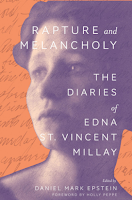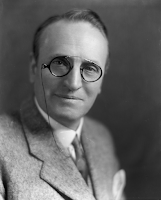 Twysden was born at Roydon Hall in Kent in 1557, the son of Sir William Twysden, a scholar and courtier during the reigns of Queen Elizabeth I and King James I - the latter made him a baronet. Roger Twysden was educated at St Paul’s School and Emmanuel College, Cambridge, before entering Gray’s Inn in 1623. Two years later he was elected Member of Parliament, and then in 1629, as eldest son, he succeeded to the baronetcy on the death of his father, and subsequently spent several years managing the family estate and becoming a county justice of the peace. Increasingly he became disturbed by royal excesses, especially ship money, a defence tax levied without parliamentary support. But he was also disturbed by the ambitions of Parliament.
Twysden was born at Roydon Hall in Kent in 1557, the son of Sir William Twysden, a scholar and courtier during the reigns of Queen Elizabeth I and King James I - the latter made him a baronet. Roger Twysden was educated at St Paul’s School and Emmanuel College, Cambridge, before entering Gray’s Inn in 1623. Two years later he was elected Member of Parliament, and then in 1629, as eldest son, he succeeded to the baronetcy on the death of his father, and subsequently spent several years managing the family estate and becoming a county justice of the peace. Increasingly he became disturbed by royal excesses, especially ship money, a defence tax levied without parliamentary support. But he was also disturbed by the ambitions of Parliament.
At the outbreak of civil war in 1642, Twysden joined a petition of grievances against the King, Parliament and the ecclesiastical authorities. This led to his being imprisoned; the following year he tried to escape to France, and he was again jailed. His estates were also sequestred. During his incarceration he wrote The Laws of Henry I and began a study of parliamentary history which later led to his foremost work - Certaine Considerations upon the Government of England. Although released after 1647, he continued to campaign on justice issues.
After the execution of the king in 1649, Twysden eventually reached a settlement over his estate at Roydon Hall, and retired there quietly. In the following years he wrote two historically important works, both published in his lifetime: Historiae Anglicanae Scriptores Decem, and An Historical Vindication of the Church of England. With the restoration of the monarchy in 1660, he resumed his position as a magistrate and was made Deputy Lieutenant of Kent. He died on 27 June 1672. Further biographical information is available from Wikipedia, or the late 19th century version of Dictionary of National Biography
Kent Archaeological Society first published what it called Sir Roger Twysden’s Journal in its publication, Archaeologia Cantiana, in 1858. It included a fascimile of the first page with Twysden’s own title - An Historicall Narrative of the two howses of Parliament. The Archaeologia Cantiana volume is freely available at Internet Archive. However, it is worth noting that Encyclopaedia Britannica refers to Twysden’s text as autobiography rather than a diary, and no bibliography of English diaries includes Roger Twysden. They do, however, include his wife, Isabella, whose diary was also published by Kent Archaeological Society, though not until 1940, as The Diary of Isabella, Wife of Sir Roger Twysden, Baronet, of Royden Hall, East Peckham, 1645-1651. This latter work is not available online.
The Society’s introduction to Twysden’s journal gives the following details: ‘The Diary [. . .] was completed and carefully prepared for the press by Sir Roger himself, and was evidently intended for publication during the Protectorate. It is written throughout in his singularly clear and neat hand, with the disfigurement of hardly a single correction; except in a very few instances chiefly made requisite by the Restoration. Why it was never published, it may not be difficult to conjecture, when we remember how entirely engrossed Sir Roger Twysden was, during the latter years of his life, in those learned researches to which we are largely indebted for the little we know of the early history of England. While occupied in these all absorbing labours, he probably laid aside his private memorials, entrusting the publication of them to those of his family who should come after him, a charge which they seem to have neglected, leaving thereby to us the gratification of first presenting them to the world. The manuscript is too long to be printed entire in a single volume of our serials; we therefore purpose giving it in successive portions. When we shall have subjoined his private correspondence, and a few extracts from his note-books, we shall be much mistaken if our readers do not love and admire the man as warmly as we ourselves do, for the depth of his learning, the soundness of his acquirements, his unfeigned and active piety, his domestic virtues, his loyalty, his ardent love of liberty, his truly English spirit.’
30 March 1642
‘The sayd 30th of March, Sr Edward Dering came unto me early in ye morning, wth whom I went the same day to London, leaving my deere wife great wth child in ye Country.’
31 March 1642
‘The 31, beeing thursday, I yielded myselfe prisoner to ye Sergeant.’
1 April 1642
‘The 1 Aprill, I, with the rest (onely Sr Edward Dering, who then absented hymself, though after hee appeered, was examined, and again went away), was called in to the howse of Commons, examyned on some few questions, and all of us committed to ye Sergeant of ye Mase attending them, who sent us prisoners to an howse in Covent Garden, tyll wee could bee farther questioned by a Committee of Lords and Commons, appoynted for that service, who soone after did it, examyning us upon about 30 Interrogatories, upon wch nothing appeering against us, and our answers agreeing, so far as their could not, nor did ought appeere against us, but an intent onely of petitioning, and yt too upon the Countrie’s desires, the Howse of Commons, not satisfyed, would have us answer to some 9 Interrogatories upon Oath.
But how to doe this for men that had not cast of all shew of legall proceedings was not so easy; for themselves had declared against all oaths ex officio, and every man’s mouth was full of ye Maxime, “No man was obliged to accuse himselfe;” how could wee, then, bee brought by oath to accuse each other, beeing alike criminall. Besides, who should doe it? For if it bee graunted (wch I beeleeve will bee a matter of much difficulty to prove), The Lords’ howse, or my Lord Keeper in it, may in some cases administer an Oath to a Commoner, may a Committee of the Lords and Commons doe it? I conceive they had no president for doing so. Yet that was our case. Mr Spencer, Sr George Strood, and myselfe must upon oath have accused each other, though told wee were not to answer anything concerned ourselves. But our integryty was such, nothing of consequence could be discovered more then beefore. After this, they two (and Sr Edward Dering absent) were empeached. Of my charge a stoppe was made, wch after was layd aside as forgotten; and those two having by good advise put in their answer, there was no farther prosecution of them, onely wee were commanded to call in all ye copies of this petition had beene by us distributed, wch was done accordingly.
Some may, perhaps, admire why the two howses were so transcendently incenced at this petition? why they laboured so earnestly the finding out a plot wch was never imagined? why they tooke so unheard of wayes in their proceedings? for when ever did the howse of Commons appoynt theyr members to joyn wth ye Lords in examining Commoners upon oath, much lesse such as were criminis participes, one against ye other? Why they shewde so strange partialyty as to incourage petitioning in some, yet make this a crime so heynous, as it is certajn a lawyer of the Howse went so far as to say there were in it things not far from treason? and another gentleman, of, I dare say, sincere and pious intentions, told me, defending it, I did not understand the ayme of that Petition; to whom I could onely wish the event might prove me ye foole.
But he will not think it strange, when he considers (as ye issue made good) ye leading men in the Howses had an intent themselves to govern ye nation by votes, paper Orders, and Ordenances, wth wch, if the King should not concur, or any other oppose, they would force obedience by the sword, wch this did a little too soone discover (they having no army, nor in a settled way of raysing one), and might open men’s eies, break their credit, and make them (by whose contributions they must bee at first enabled) lesse willingly contribute to their owne ruine. For these men, presently after the perpetuity graunted, resolved on a change in Church and State, swallowed up all Episcopall, and Dean and Chapters’ revenues; yet, not to lose ye Cleargy totally, persuaded such of them as had beene any way kept under by the Bishops, it should bee distributed for ye improvement of smaller livings, increasing able preachers, raysing lectures, and ye like; and this they did not doubt of effecting wthout the considerable opposition of any, unless perhaps the episcopall party in ye Lords’ Howse, wch being now removed thense, it angred them greatly to see others in any kind thuart their designes, wch they saw this Petition to doe.’
This article is a slightly revised version of one first published on 27 June 2012.









